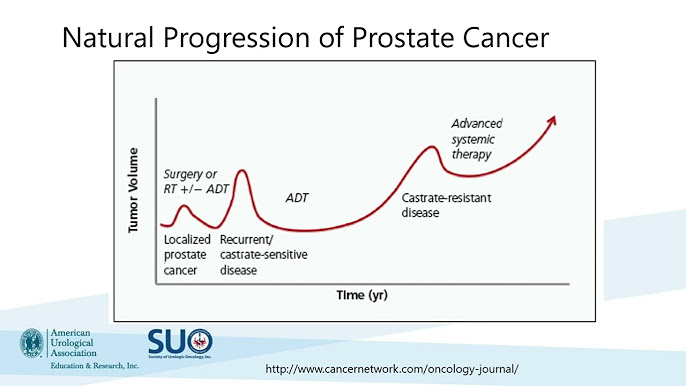The Greatest Guide To Best Prostate Cancer Hospital In Mumbai
The Greatest Guide To Best Prostate Cancer Hospital In Mumbai
Blog Article
Newest Study on Prostate Cancer Cells Detection and Treatment Choices
Recent improvements in the area of prostate cancer cells detection and treatment have stimulated substantial interest among clinical specialists and patients alike. From innovative early detection techniques that hold guarantee for boosted results to the development of genetic screening modern technologies that offer personalized understandings, the landscape of prostate cancer management is swiftly progressing. Furthermore, the introduction of novel immunotherapy strategies and the application of accuracy medicine approaches are improving the method we approach this disease. As researchers proceed to discover these sophisticated modalities and their effects for individual treatment, the opportunities for even more efficient and tailored treatments in prostate cancer are coming to be progressively obvious.
Early Discovery Approaches
Utilizing sophisticated screening techniques is vital in the very early detection of prostate cancer, as timely medical diagnosis significantly enhances treatment outcomes. Among the most usual screening examinations for prostate cancer is the prostate-specific antigen (PSA) blood examination. Raised degrees of PSA might show the existence of prostate cancer cells, prompting further diagnostic examinations such as a digital rectal test (DRE) or a prostate biopsy. The PSA test has constraints, as elevated degrees can likewise be caused by non-cancerous problems like benign prostatic hyperplasia or inflammation.
In recent years, developments in imaging innovation have led to the advancement of more precise diagnostic devices for spotting prostate cancer. By including these innovative testing techniques into routine prostate cancer cells screenings, health care carriers can improve the possibilities of spotting the condition in its early stages when therapy is most reliable.

Hereditary Checking Developments
Offered the developments in diagnostic devices for detecting prostate cancer, the integration of genetic testing technologies offers a promising opportunity for additional enhancing very early detection techniques. Genetic testing has the prospective to recognize individuals with a higher hereditary proneness to prostate cancer, allowing for targeted screening and tailored treatment strategies. By analyzing details hereditary markers linked with prostate cancer, doctor can better analyze an individual's danger profile and dressmaker testing methods appropriately.
In addition, hereditary screening technologies can help in identifying the aggressiveness of prostate cancer, leading treatment choices and enhancing person outcomes. Identifying mutations in genes like BRCA1 and BRCA2 can influence treatment options, such as deciding for extra hostile therapies or participating in scientific tests for targeted therapies.

Immunotherapy Developments
What considerable development has been made in the realm of immunotherapy for prostate cancer cells treatment? Immunotherapy has actually arised as a promising therapy choice for prostate cancer cells, with recent advancements revealing great prospective in boosting client results. One significant growth is using immune checkpoint preventions, such as pembrolizumab and nivolumab, which function by obstructing inhibitory paths in the immune system, allowing it to better acknowledge and attack cancer cells. Clinical tests exploring the efficacy of these preventions in advanced prostate cancer have revealed appealing results, with some individuals experiencing significant reactions and prolonged survival. best prostate surgeon in Mumbai.
Another amazing location of research is the growth of restorative cancer cells vaccines that boost the immune system to target prostate cancer cells particularly. Sipuleucel-T is the first FDA-approved injection for Best prostate cancer hospital in India prostate cancer and has actually shown boosted overall survival in specific patient populations. Furthermore, recurring research is concentrating on incorporating immunotherapy with other therapy techniques, such as chemotherapy or targeted therapy, to boost treatment effectiveness and address resistance systems. These innovations in immunotherapy hold wonderful assurance for enhancing results for prostate cancer cells clients and are leading the way for even more tailored and efficient treatment techniques.
Accuracy Medication Approaches
Immunotherapy innovations have paved the method for accuracy medicine techniques in prostate cancer cells treatment, targeting certain hereditary modifications to customize therapies for specific clients. Precision medication in prostate cancer includes determining essential hereditary anomalies or alterations within a person's growth that drive cancer cells growth.
Via accuracy medicine, clients can profit from treatments that are not just extra effective however additionally possibly less hazardous, as they are made to particularly target cancer cells while sparing healthy and balanced tissues. In addition, recurring study is concentrated on recognizing brand-new hereditary markers and creating ingenious targeted therapies to further boost the precision and efficacy of prostate cancer cells treatments. The combination of accuracy medicine right into scientific practice represents a significant advancement in the management of prostate cancer, using wish for improved results and top quality of life for people.
Emerging Treatment Methods

Final Thought
To conclude, the most recent study on prostate cancer cells detection and therapy alternatives has shown significant innovations in early discovery methods, genetic testing developments, immunotherapy techniques, accuracy medicine techniques, and emerging treatment modalities. These developments hold assurance for boosting person results and lifestyle. Best prostate cancer hospital in Mumbai. Proceeded research study and partnership in this field are necessary to additionally boost our understanding of prostate cancer and establish much more effective therapy techniques
Elevated degrees of PSA might show the existence of prostate cancer cells, triggering additional diagnostic tests such as a digital rectal exam (DRE) or a prostate biopsy.Another amazing area of research is the advancement of therapeutic cancer injections that promote the immune system to target prostate cancer cells particularly.Immunotherapy improvements have paved the way for accuracy medicine methods in prostate cancer therapy, targeting particular genetic changes to tailor therapies for individual people. Accuracy medicine in prostate cancer cells includes determining key hereditary mutations or alterations within a patient's tumor that drive cancer cells development.In final thought, the newest research on prostate cancer detection and treatment choices has actually revealed substantial advancements in very early detection approaches, genetic screening developments, immunotherapy strategies, accuracy medication methods, and emerging treatment modalities.
Report this page